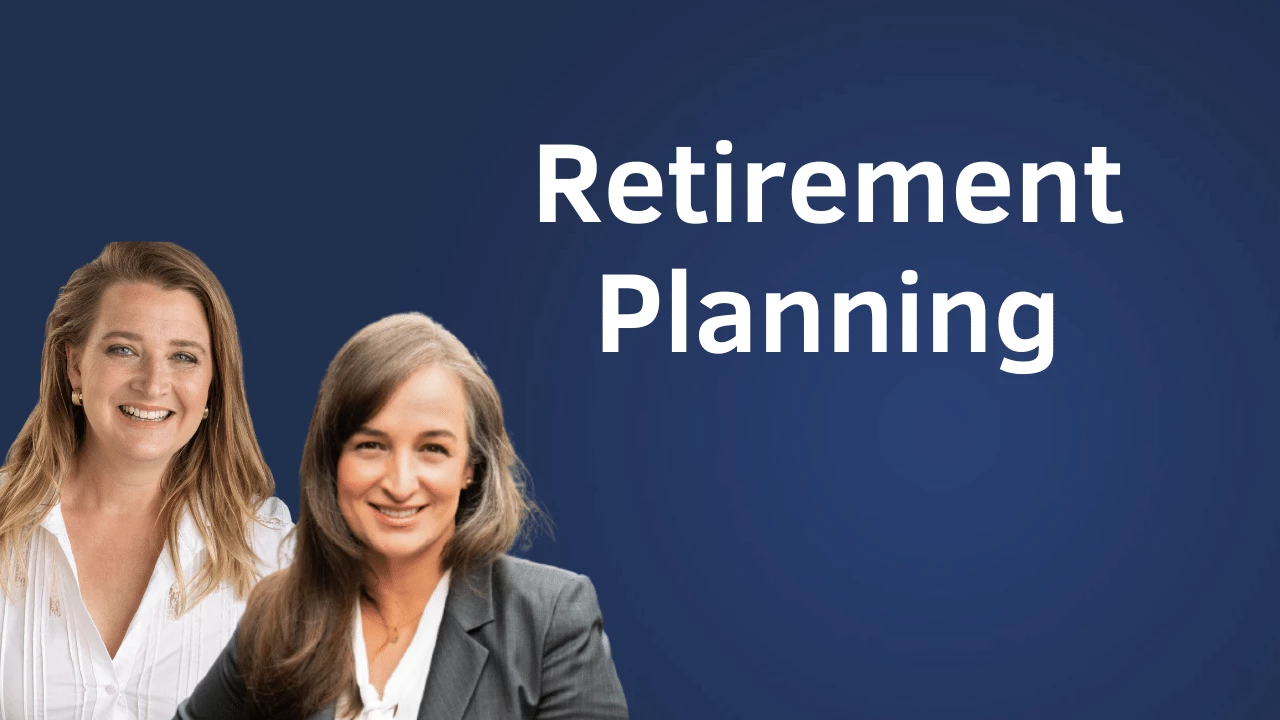Episode 146 - How much do I need for a comfortable retirement? - with Kristi Badgery

According to our guest, the key to a successful retirement is careful planning, good investment choices, and a disciplined approach. Making smart decisions about your money and investments while still working and earning an income is a critical success factor.
Kristi Badgery is the co-founder of Breakwater Financial Planning and has years of experience helping pre-retirees prepare for and eventually enjoy their retirement. Kristi provides financial advice on Retirement Planning, Superannuation, Investment Advice, Portfolio Management, Insurance, accessing government support (in Australia, Centrelink), and Aged Care.
I invited her for a chat to guide you and me to plan for our retirement. Servicing my older clients, 50 and above, I have noticed that for some, retirement is high up in their priorities and very much part of our planning and discussions. For others, it doesn't even cross their minds to stop working. Which type of person are you? I bet you know people that are good examples of what I just described. I am now 50 years old, Andre, my husband is 56, and retirement is not part of our next 10-year plan. Still, we should be making decisions about it now rather than later.
If you are willing to invest in coaching to support your career plans, please consider having a chat with me. I have clients aged between 35 and 70 and have supported several clients in their 60s to re-energize their careers. I'd be happy to help you achieve your preferred future. Click here to learn more about my career services or book a complimentary chat about private coaching.
Disclaimer from Kristi
The information contained in this podcast is of general nature only, doesn't constitute financial advice or taxation advice, and doesn't take into account your objectives, needs, and circumstances. We recommend you obtain investment and taxation advice specific to your investment objectives, financial situations, and particular needs before making any investment decisions or acting on the information contained.
About our guest, Kristi Badgery
Kristi Badgery is the co-founder of Breakwater Financial Planning, a boutique financial planning firm with no product provider affiliation, which means that her focus is on her client. As a Certified Financial Planner® with over 15 years of experience in the financial services industry, Kristi has experience helping pre-retirees prepare for and eventually enjoy their retirement. Kristi provides financial advice on Retirement Planning, Superannuation, Investment Advice, Portfolio Management, Insurance, Centrelink, and Aged Care and can help guide you through retirement with a customized financial plan.
To learn more about her work, please go to https://www.breakwaterfp.com.au .
Kristianne Badgery, Authorised Representative No. 1260861 of Breakwater Financial Planning Pty Ltd. Breakwater Financial Planning Pty Ltd is a Corporate Authorised Representative (No.1292320) of Capstone Financial Planning Pty Ltd. ABN 24 093 733 969. Australian Financial Services Licence No. 223135.
Resources mentioned in this episode
Timestamps to guide your listening
Transcript of this episode
About the Host
Hello, I’m Renata Bernarde, the Host of The Job Hunting Podcast. I’m also an executive coach, job hunting expert, and career strategist. I teach professionals (corporate, non-profit, and public) the steps and frameworks to help them find great jobs, change, and advance their careers with confidence and less stress.
If you are an ambitious professional who is keen to develop a robust career plan, if you are looking to find your next job or promotion, or if you want to keep a finger on the pulse of the job market so that when you are ready, and an opportunity arises, you can hit the ground running, then this podcast is for you.
In addition to The Job Hunting Podcast, on my website, I have developed a range of courses and services for professionals in career or job transition. And, of course, I also coach private clients.
Contact Renata Bernarde
I’m determined to help you! I want you to feel empowered, nail your next job, and have the career you want.
My free resources for job hunters: The Optimized Job Search: Weekly Schedule & Masterclass.
Learn more about my services, courses, and group coaching: RenataBernarde.com
